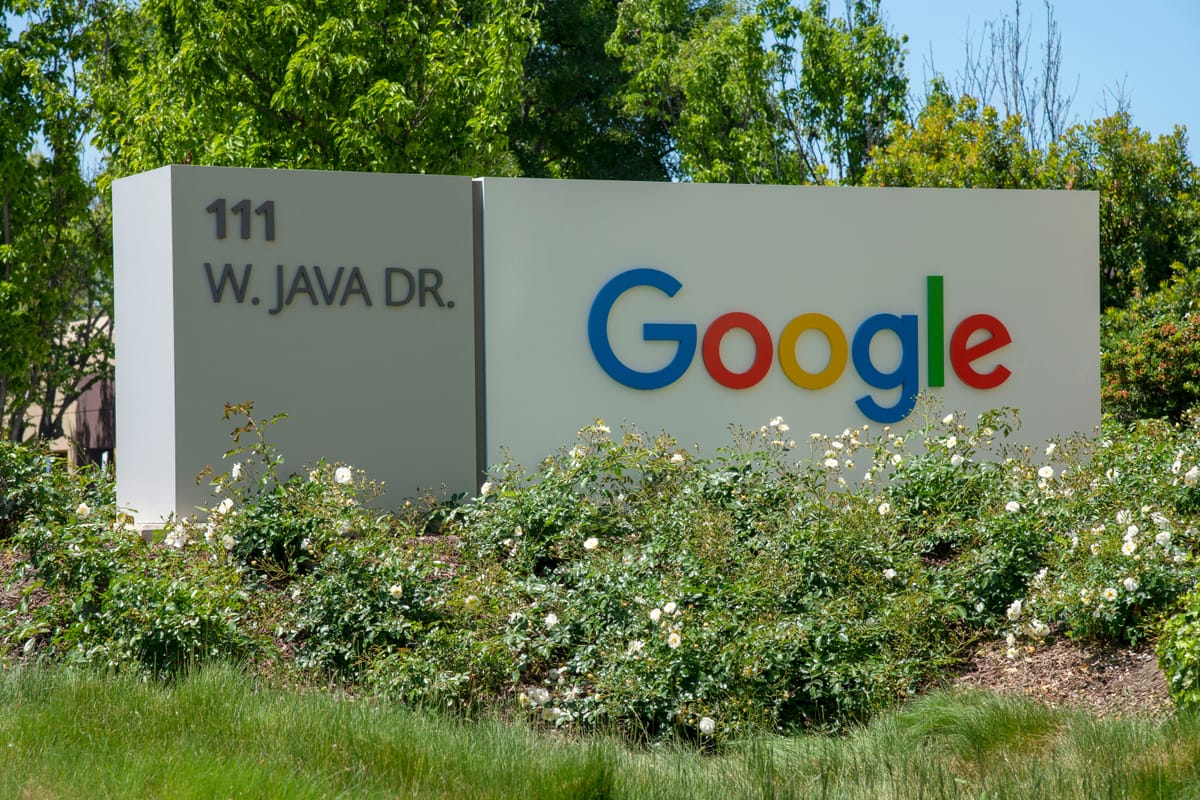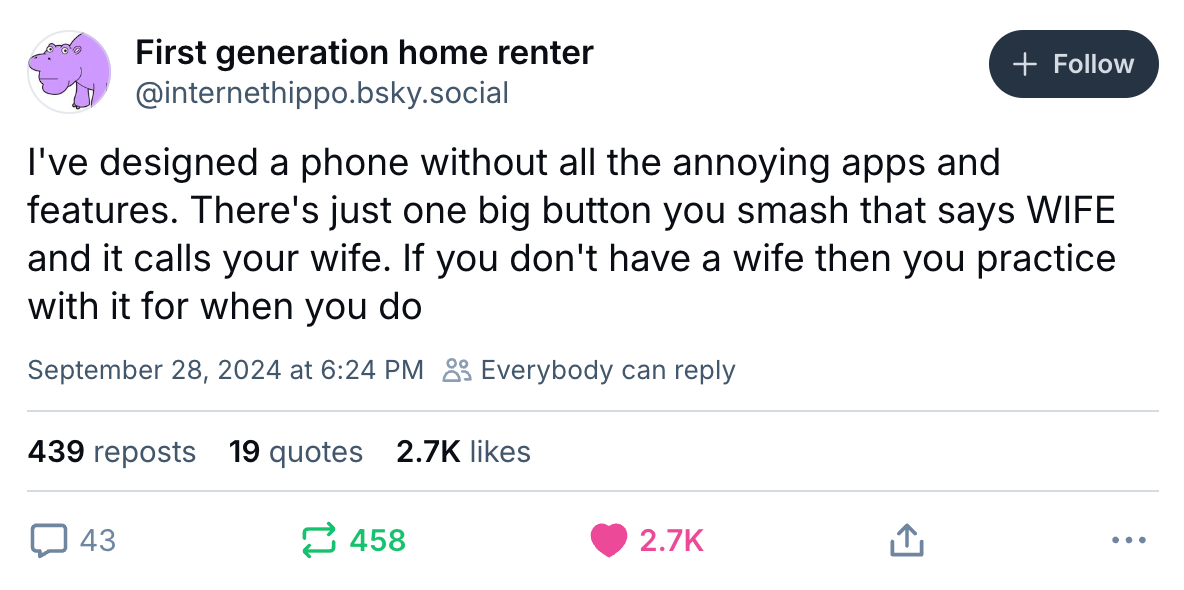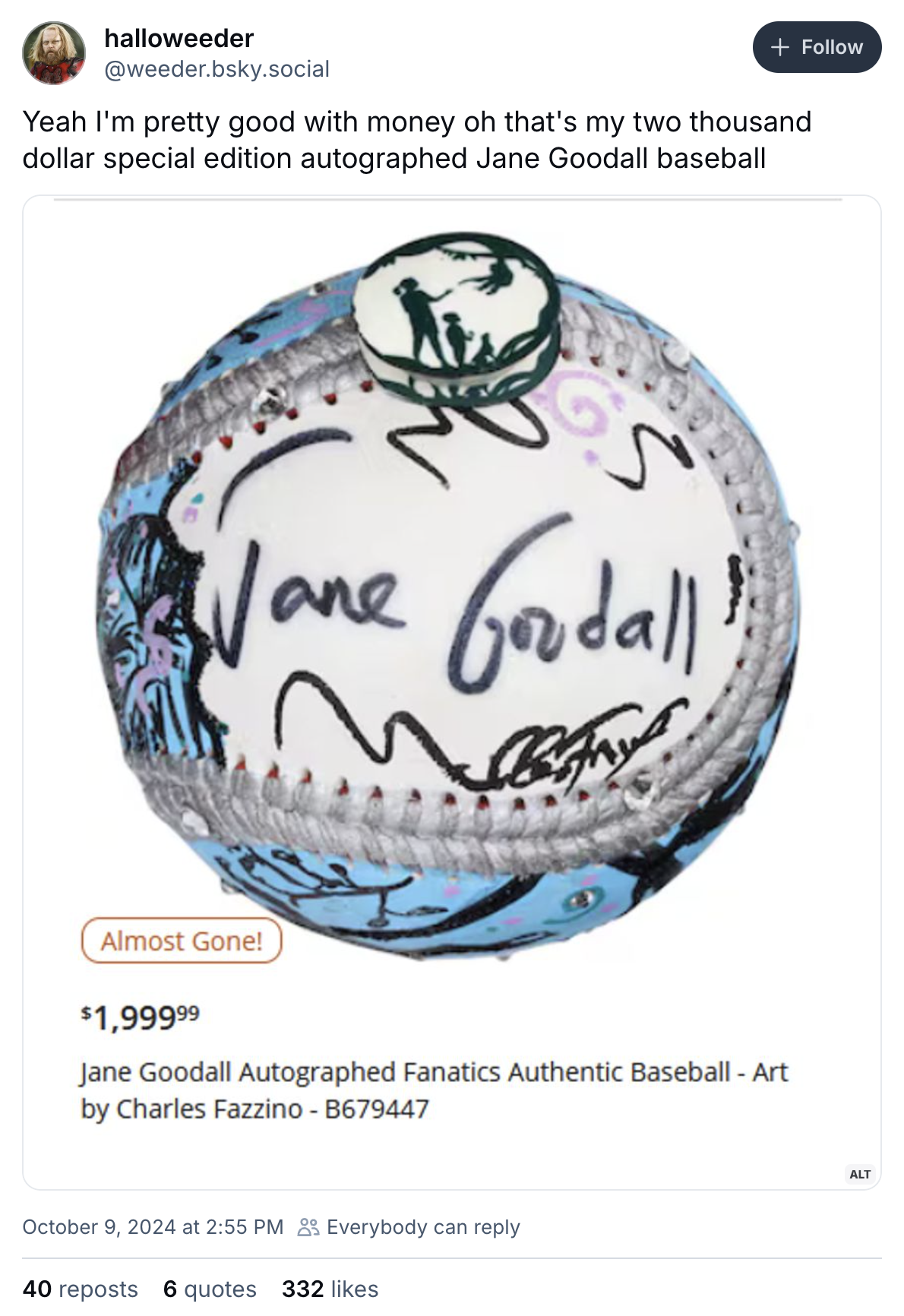The likeliest outcomes from the Google antitrust trial
Breaking up is very hard to do. So what else is on the table?

In August, a federal judge ruled that Google had illegally maintained its monopoly in search and search text advertising. This week, the Department of Justice previewed its suggested path forward for breaking Google’s grip: a lengthy menu of options as limited as preventing the company from buying default placement on the iPhone and other prominent services and as profound as breaking up the company.
Google responded to the proposals forcefully — incredulously, even. “This case is about a set of search distribution contracts,” Lee-Anne Mulholland, the company’s vice president for regulatory affairs, said in a blog post. “Rather than focus on that, the government seems to be pursuing a sweeping agenda that will impact numerous industries and products, with significant unintended consequences for consumers, businesses, and American competitiveness.”
Both the government’s 32-page filing and Google’s response should be viewed as the party’s initial bargaining positions in what promises to be a lengthy and bruising negotiation. The government will file its final proposal next month, but the broad outlines are clear. To create a more competitive internet, the DOJ warns, it must consider tearing Google asunder. “These markets are indispensable to the lives of all Americans,” it writes, “whether as individuals or as business owners, and the importance of effectively unfettering these markets and restoring competition cannot be overstated.”
Google, for its part, rolled out a series of background briefings, one of which I attended, the general thrust of which was: (1) this is not fair; and (2) even if it was fair, what DOJ is proposing would cause catastrophic harm to Google, consumers, and perhaps even the very fabric of capitalism.
Given the stakes, I think everyone here can be forgiven for their theatrics. More interesting to consider, I think, is what outcomes are actually likely. After spending the week talking to some folks involved in the case, here’s what I expect.
Certainties
The one outcome everyone agrees on here: getting to a resolution is going to take a long time. A hearing on the proposed remedies won’t take place until April of next year, and Judge Amit Mehta says he plans to rule in August. Everyone expects his decision to be appealed, and the more disruptive the remedy he proposes, the more likely the case is to be taken up by the Supreme Court.
But that’s where the certainties end. It’s particularly difficult to guess how the case might be decided on appeal. This is a case that was decided by one person, and there’s no telling how a larger panel of jurists might rule.
This slow, unpredictable grinding of gears has some obvious benefits for Google. For now, it can continue to strike search deals with Apple, Reddit, and whoever else will take its money. It can invest into Chrome and Android without any near-term worry that they will be wrested from its hands. It can enjoy the fruits of its thriving search monopoly, which generated $24 billion in profits in the last quarter alone.
But the drawn-out process gives the government some of what it wants, too. The looming specter of a breakup seems likely to further distract a company already struggling with the widespread perception that search quality is declining. (Not to mention the embarrassing launches of its AI-powered search and image-generation products.)
And there’s some evidence the company is already slipping. The research firm eMarketer predicts that Google’s share of the search ad market will drop below 50 percent for the first time in a decade next year, with Amazon’s ad revenue growing more than twice as fast as Google’s and new entrants like TikTok and Perplexity offering fresh alternatives to search and search ads.
To Google, that’s just evidence of what it has been saying all along: that the market for search is robust and competitive. In reality, the vast majority of searches still run through Google’s servers. Either way, though, even the threat of a breakup may cause Google to wobble enough to give insurgents the rare chance to gain a foothold.
Very likely
The case that Mehta decided against Google hinged on the deals it makes for default placement of its search engine on the iPhone, Mozilla’s Firefox browser, and elsewhere. Google pays dearly for the privilege: its payments to Apple alone exceeded $20 billion in 2022, according to court records.
The court found that these payments allow Google to illegally maintain its monopoly in a few ways. One, no other company can afford to pay as much as Google does to companies like Apple. Its search engine is so much bigger, and sees so many more queries, that it can’t possibly share as much revenue with Apple as Google does.
Two, by paying for these placements, Google ensures that no other company takes the spot and gains access to the query data. Google’s search quality is better than some rivals in large part because it gets more searches than anyone else, which helps it to build a better index and refine the results it shows.
Assuming the case is upheld on appeal, then it’s difficult to see how these deals survive. Preventing Google from buying default placement on hundreds of millions of devices appears to be the narrowest means at the government’s disposal to get what it wants: breathing room for companies like Microsoft and DuckDuckGo, which would be free to strike deals of their own and reap the benefits of default placements.
Many or even most people will simply switch back to Google, of course. But that’s fine: the idea is not to ensure that Google’s competitors win, but to give them some oxygen and a fighting chance to win converts.
Less clear is what companies like Apple would do in this situation. Given the nature of the case, the government’s remedies cannot include forcing device manufacturers to change their operating systems. That means Apple will likely be presented with a choice: keep Google as the default without taking payment, because it believes Google’s search is superior; or seek billions from a deep-pocketed but inferior rival like Microsoft in the name of shareholder value.
My guess is that Apple would take the money. But it may have better options.
Somewhat likely
Maybe instead of striking a default deal, Apple shows you a “choice screen”: a list of search engines to choose from when you set up a new device. Most of the search engines there likely will have paid Apple for the privilege of being shown as a choice. Google will be there, too — but for free.
It would be somewhat ironic, of course, for the government’s solution to save Google $20 billion a year in distribution costs. But given their limited influence over iOS — at least in this trial — it’s not clear what else they could do.
Another somewhat likely outcome here: Google has to share some sort of data with its rivals. A key complaint from other search engines is that Google’s monopoly makes it impossible for them to get the volume of queries they need to build a competitive search engine. A solution, then, would be to require Google to share those queries with rivals in some form.
The government could require that Google share aggregated, anonymized searches with DuckDuckGo and others to help them build their own indices. There are privacy risks here — data like this can be de-anonymized, with enough effort — but probably not enough risk that a judge would say it’s off the table.
Conveniently, the US government has a template here that it can suggest that the court apply. The European Union’s Digital Markets Act, which took effect last year, puts some data-sharing requirements on large “gatekeeper” platforms like Google. As a result, search engines that serve European users can now apply to get Google search data for more than 1 billion queries across 30 countries.
That falls short of what DuckDuckGo has called for: a real-time API for Google search, including the search results that Google offers for all those queries. But the fact that Google has already implemented a similar approach in Europe means it will struggle to convince a judge that it could never do so at home.
Less likely
While its filing offers few details, the government says it is considering “behavioral and structural remedies that would prevent Google from using products such as Chrome, Play, and Android to advantage Google search and Google search-related products and features.”
“Structural” is government-speak for breakup. While it’s almost unheard of in antitrust enforcement in the United States, I can see the government effectively making this argument — in the separate antitrust trial that just wrapped up regarding its online display advertising business. There it seems obvious that the company has acquired and vertically integrated its competitors to make meaningful competition almost impossible — and you have only to look at the decline of web publishing and the internet in general to find the evidence.
In this trial, though, I suspect the government will have a harder time. Not because Chrome and Android are so integral to Google — and, in Chrome’s case, entirely homegrown. But rather because neither divestiture would obviously inject new life into the search market. The government can argue that the spun-out versions of Chrome and Android might strike default placement deals with Google’s rivals, helping them grow. In practice, though, I suspect the move would just generate more choice screens, and it’s hard for me to imagine a judge ordering that the company be broken up for that relatively minor outcome.
Unknowns
While the more significant Google advertising case is separate, this one has an ad component, too. Specifically, Judge Mehta ruled that Google has a monopoly over the sponsored links it shows you next to your queries.
“To fix this, the government says it’s considering remedies that would ‘create more competition and lower the barriers to entry, which currently require rivals to enter multiple markets at scale,’” Lauren Feiner writes at The Verge. “That could include addressing Google’s use of AI to protect its monopoly power in this market, it says. It’s also looking at licensing or syndicating Google’s ad feed separately from its search results and requiring certain kinds of information Google should provide to advertisers about their performance.”
All of that seems fairly vague to me. Until we’ve seen a more concrete proposal, I’ll pass on making any predictions
Looking ahead
In the end, it seems unlikely that the government will get all or even most of what is on its wishlist. Microsoft, after all, faced much greater scrutiny than Google did a generation ago and still managed to survive with its entire business intact. Its market capitalization is now $3 trillion — $1 trillion more than Google.
But while the government failed to break up Microsoft, the process did manage to create an opening in the market through which real competition did emerge. Most famously, Google itself arose during this period, when an otherwise occupied Microsoft failed to build a good web search product and ultimately saw its browser lose out to Google’s as well.
The breakup of Google would be a truly surprising outcome from this particular antitrust case. But a rattled, distracted Google is all but a guarantee. And if we’ve learned nothing else from recent antitrust law, it’s that distracting the giants can go a long way toward giving challengers the opening they need to succeed.
Elsewhere in antitrust: Why it’s so hard to break up companies. Google’s plan to run out the clock. And Matt Brittin, who led the company’s EMEA division for a decade, is leaving the company.

Sponsored
Keep Your Private Data Off The Dark Web
Every day, data brokers profit from your sensitive info—phone number, DOB, SSN—selling it to the highest bidder. And who’s buying it? Best case: companies target you with ads. Worst case: scammers and identity thieves. It's time you check out Incogni. It scrubs your personal data from the web, confronting the world’s data brokers on your behalf. And unlike other services, Incogni helps remove your sensitive information from all broker types, including those tricky People Search Sites. Help protect yourself from identity theft, spam calls, and health insurers raising your rates. Plus, just for Platformer readers: Get 55% off Incogni using code PLATFORMER


On the podcast this week: Kevin and I talk about the rise of AI slop as a political force in natural disaster discourse — and the election. Then, filmmaker Cullen Hoback stops by to discuss his controversial new documentary in which he makes a case for the true identity of Bitcoin founder Satoshi Nakamoto. And finally, we climb back aboard the Hot Mess Express.
Apple | Spotify | Stitcher | Amazon | Google | YouTube
Governing
- Geoffrey Hinton, the machine learning pioneer and former Google executive, used the occasion of his announcement as a Nobel laureate in physics to warn about the risks posed by artificial intelligence. (Miles Kruppa and Deepa Seetharaman / Wall Street Journal)
- Two Google DeepMind scientists, Demis Hassabis and John Jumper, shared the Nobel prize in chemistry. (Kati Pohjanpalo and Mark Bergen / Bloomberg)
- The Kamala Harris campaign live streamed a Tim Walz rally in Arizona on Twitch while a creator named Preheat played World of Warcraft and offered live commentary. We are this close to getting a TV debate that takes place next to highlights from Subway Surfer. (Makena Kelly / Wired)
- OpenAI published a 54-page report saying it had disrupted 20 operations and networks attempting to misuse its tools for influence operations. (Hayden Field / CNBC)
- OpenAI also said a group linked to China attempted to phish its employees. The effort failed, but we can assume that this effort remains ongoing. (Seth Fiegerman / Bloomberg)
- In a legal filing, OpenAI called Elon Musk’s complaint against the company “the latest move in [his] increasingly blusterous campaign to harass OpenAI for his own competitive advantage.” (Malathi Nayak and Rachel Metz / Bloomberg)
- Instagram and Threads chief Adam Mosseri said he is “looking into it” after widespread reports of overly punitive content moderation that led to innocuous posts being banned and creators punished. Bluesky took the opportunity to create a Threads account and promote its composable moderation tools. (Umar Shakir / The Verge)
- The Oversight Board agreed with Meta that it should have removed a post that purported to show a 14-year-old girl who was preparing to get married, but said the company’s logic was flawed and called on the company to refine its policy. (Oversight Board)
- A multi-year competition inquiry into Meta in Germany ended with the company changing some of its data handling practices and withdrawing its appeal. (Natasha Lomas / TechCrunch)
- A profile of Lina Khan after her first term as FTC chair finds that she has taken a much more aggressive approach than recent predecessors, drawing ire from many in Silicon Valley but also drawing support from a diverse coalition of liberal and conservative lawmakers. (Josh Eidelson / Bloomberg)
- Posts encouraging eating disorders were recommended to users on X, with one community amassing 173,000 followers. (Kat Tenbarge / NBC)
- A look at the rise of political creators on TikTok during the election, some of whom have followings that vastly outstrip mainstream media outlets. (Nate Rattner / Wall Street Journal)
- Turkey blocked access to Discord, citing crimes of "child sexual abuse and obscenity" that had taken place on the platform. (Reuters)
- Pro-Russia military bloggers say Russia’s recent ban on Discord has left their army without reliable battlefield communication tools. (Mary Ilyushina / Washington Post)
- A profile of Withheld for Privacy, a company that helps internet users shield their identities, and which has turned Iceland into “a virtual offshore haven for some of the world’s worst perpetrators of identity theft, ransomware, disinformation, fraud and other wrongdoing.” (Steven Lee Myers and Tiffany Hsu / New York Times)

Industry
- A new Bitcoin documentary identified Canadian programmer Peter Todd as Satoshi Nakamoto, the creator of Bitcoin. Todd denies it. (Kevin Roose / New York Times)
- X said it would stop paying creators based on revenue from ads in their replies and instead on the engagement they get from other paid users. (Jay Peters / The Verge)
- Meta AI rolled out to six more countries, including the United Kingdom. (Anna Washenko / Engaget)
- A look at OpenAI’s plans to convert itself to a public benefit corporation, giving it more leverage to defend against unwanted acquisitions or activists’ demands. (Cristina Criddle and Patrick Temple-West / Financial Times)
- The company’s revenue projections show its losses tripling to $14 billion in 2026. (Cory Weinberg / The Information)
- OpenAI board member Bret Taylor’s startup Sierra is closing a fundraising round that could value it at $4 billion. We asked if the company was using OpenAI APIs and they never responded to us. Governance! (Kate Clark and Stephanie Palazzolo / The Information)
- OpenAI announced the opening of an office in Singapore and said Oliver Jay would lead its international expansion. (Laura Dobberstein / The Register)
- WordPress.org now requires users to disclaim any affiliation with WP Engine to log in. This feels like it’s a step or two away from a total meltdown. (Samantha Cole / 404 Media)
- In a sharp rebuttal to Automattic co-founder Matt Mullenweg, Ruby on Rails founder David Heinemeier Hansson says the company is unfairly trying to rewrite the rules of open source: “There cannot be a second set of shadow obligations that might suddenly apply, if you strike it rich using the software. Then the license is meaningless, the clarity all muddled, and certainty lost.” (DHH)
- Zoom said that next year it will release a tool that displays a photorealistic avatar for video calls. (Kyle Wiggers / TechCrunch)
- Dan Riccio, a longtime Apple executive who led the Vision Pro effort, is retiring. (Mark Gurman / Bloomberg)
- Amazon is adding AppleTV+ to the lineup of channels it will resell. (Lucas Shaw and Caroline Hyde / Bloomberg)
- A look at Amazon’s effort to build AI agents that will constantly recommend products to you and even shop on your behalf. (Will Knight / Wired)
- Amazon unveiled an AI tool designed to help delivery drivers find packages in their vans faster, which it said could save them 30 minutes a day. (Spencer Soper / Bloomberg)
- Amazon is planning to bring same-day prescription delivery to nearly half the United States next year. (Annie Palmer / CNBC)
- ByteDance announced the $170 Ola Friend earbuds in its first push into AI wearables. (Coco Friend / South China Morning Post)
- Glassdoor added short videos, polls, and images to help deranged people punish their former employers on their way out the door. (Ivan Mehta / TechCrunch)

Those good posts
For more good posts every day, follow Casey’s Instagram stories.

(Link)

(Link)

(Link)

Talk to us
Send us tips, comments, questions, and antitrust remedies: casey@platformer.news.





